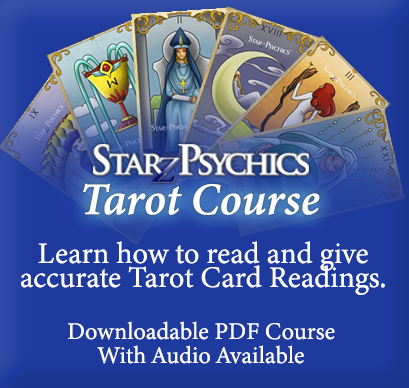- Home
- Editor's Notes
- Current Issue
- Riki Reflects
- Spiritual Traveler
- Starz Emporium
- Classifieds
- Advertise with Us
- Submissions
- Awards
- About Us
- Contact Us
Interview with Author of Treasure Hunt
By Riz Virk
.jpg) Riz Vark
1. Why did you write Treasure Hunt?
I wrote Treasure Hunt to help readers bring a sense of adventure and excitement back into their careers. Too often, we think about our jobs and our careers from a left brained, rational perspective, but this isn’t the way for us to feel fully satisfied and to achieve breakout success. In my own career as an entrepreneur, I’ve found that my intuition played a big role in navigating where I wanted to go next, and I think that’s true of most successful people. I think the metaphor of a “Treasure Hunt” where you have to follow the clues to get the treasure is playful and powerful. The Treasure may be financial freedom, but it may just a likely be the work you were meant to do in this life. 2. Who is the book for? You don’t have to be an entrepreneur for this book to have an impact on your life. This is for anyone who wants to have more meaningful work and wants to find “True Success”. I define “True Success” not just in financial terms but that you are leveraging your strengths, weaknesses, and personality to make a difference in the world. There is an element of “being in the right place at the right time” and when that happens, we perform better and it feels like there is something greater than us which carries us along. 3. What do you mean by clues? This book is all about learning to recognize and follow clues in your own personal Treasure Hunt. “Clues” can come in many forms – they can be in the form of intuition, synchronicity, coincidence, direct messages, feelings of deja vu, dreams, hunches, physical sensations. If we pay attention, we learn that the universe is always speaking to us through these clues, which are “personalized’ messages that jog our intuition. Usually clues involve the co-incidence of something external and an internal feeling that goes along with it. You see a book cover that calls to you, or you think about someone and they call you. A synchronicity, which Jung defined as a meaningful coincidence is a perfect type of clue. Clues are subjective because you and I might see the same thing but it may mean completely different things to us. Like in any good treasure hunt, a clue is meant to lead you in a direction to … the next clue … which leads eventually to the treasure. 4. Can you explain simply how you think quantum physics might play a role in our Treasure Map? In the book, I look at different interpretations of where do clues come from – from a spiritual perspective and from a scientific perspective. From a scientific perspective, the field of quantum physics provides very important models that could explain what “clues” are. I think of “clues” as “glitches” in the matrix, because they are meaningful and seem coincidental but are really not. In one model of quantum physics, we are communicating with different future probably selves all the time. In this model, information is being sent back in time to our present from all possible futures, each of which may have a different probability. The “future self” with the higher probabilities tend to be ones that we pay attention to in our minds, and thus they are sending us information about which path to follow. The only instrument capable of receiving this information is our mind, and that’s why clues have both an external and internal component – quantum physics may explain why we might both see a picture of a certain spot in California and it might call out to me because I was meant to live there there in the future, but it may have no particular significance for you beyond being a nice picture. 5. One of the problems with intuition is being able to trust it. One suggestions do you have for people who want to trust their gut but let their logical self override it? This is a very important topic, because some people are better at following their intuition than others. In the book, I introduce the Clue Lifecycle, which is a way to think about clues that we recognize in the market. The stages of the Clue Lifecycle go from “recognition” to “interpretation” to “action”, “confirmation” and “reflection”. The idea is to bring the right brain (which recognizes clues intuitively) in sync with the left brain (which logically plots out courses of action). If you are someone that follows things blindly, then you can use the Clue Lifecycle to require a “confirmation” phase which can help to validate your clues. If you are someone that waits too long and analyzes things too much, you can use the Clue Lifecycle to take small steps or actions which can help you to learn to follow the clues more readily. 6. Can you give an example of how following your Treasure Map has lead you to success? Sure, there are many in my career as a startup entrepreneur. When I was in college thinking about starting a company, I came across this new technology called Lotus Notes. Something about it felt funny to me but I couldn’t quite put my finger on it, it was as if there was an invisible mentor saying to me, “pay attention” to this technology. Then, a year later, after I’d graduated I ended up getting a job at Lotus and working with this technology that I’d been intrigued by, and my first startup, Brainstorm, was directly related to building tools for Lotus Notes. This is an example where following a thread that led to my first multi-million dollar company. 7. You are running a competition in conjunction with the book for $20,000. Can you tell us a little bit about it? In conjunction with the book launch, I am also launching a contest, which I refer to as “A Real Life Treasure Hunt: Follow Your Dreams”. The idea is to have people from all walks of life enter their business idea and I will invest $20,000 in one winner’s business idea and give them mentoring. While I live in Silicon Valley where angel investing is common and I run a startup accelerator at MIT for software/gaming companies, the idea here is to open up the contest to people who might not otherwise be able to find investors. The idea doesn’t have to be software, it can be any kind of business idea. To enter, contestants have to show they bought and read the book, and explain how they “followed the clues” to their business idea, and fully explain their business idea. The author will pick finalists and interview them to choose a winner – think of it as a “shark tank” with a spiritual perspective. More information available at www.zenentrepreneur.com/contest |
Share this article with friends!
|
Copyright © 1998 - 2026 Mystic Living Today All rights, including copyright, in the content of these Mystic Living Today web pages are owned or controlled for these purposes by Planet Starz, Inc. Terms of Service Disclaimer and Legal Information For questions or comment, contact Starzcast@mysticlivingtoday.com. Reproduction of this page in any form is not allowed without permission of the author and the owner of this site. All material on this web site, including text, photographs, graphics, code and/or software, are protected by international copyright and trademark laws. Unauthorized use is not permitted. You may not modify, copy, reproduce, republish, upload, post, transmit or distribute, in any manner, the material on this web site. Unless permissions is granted. |



